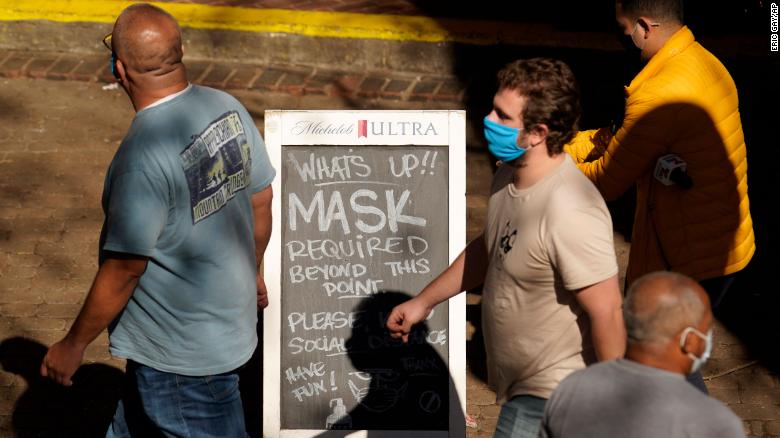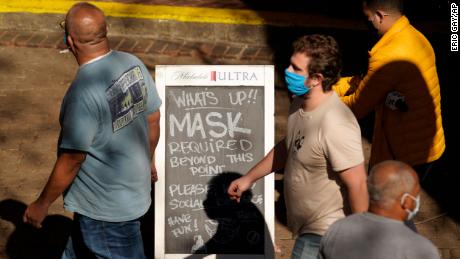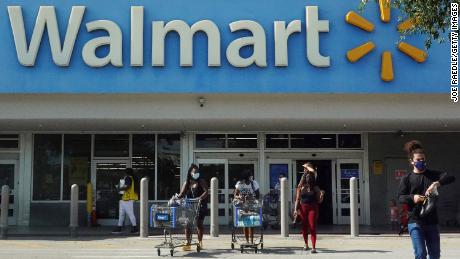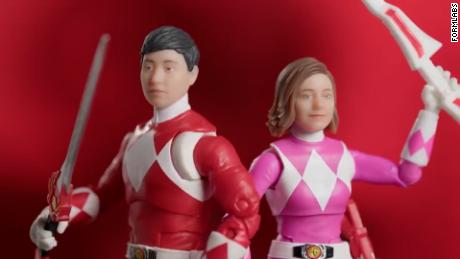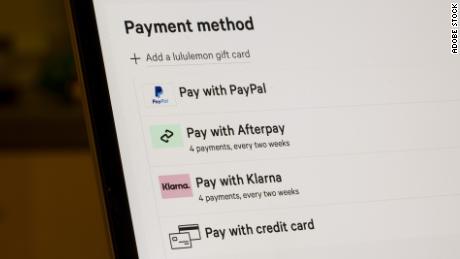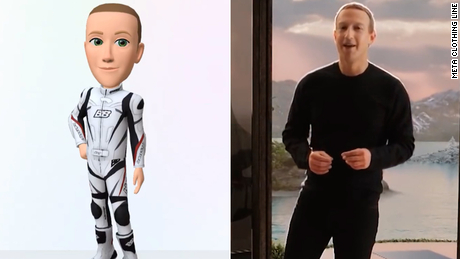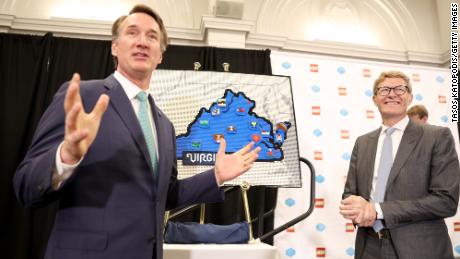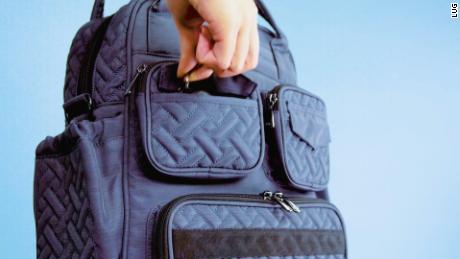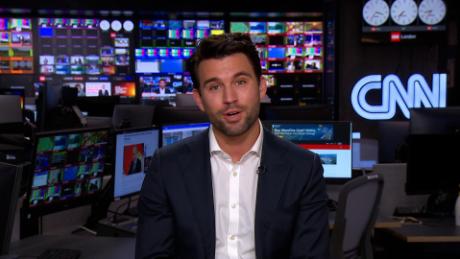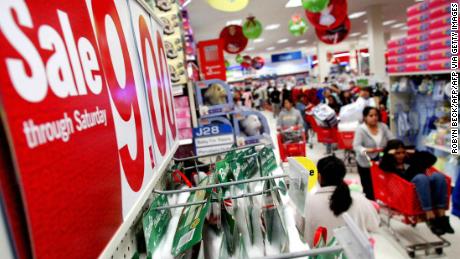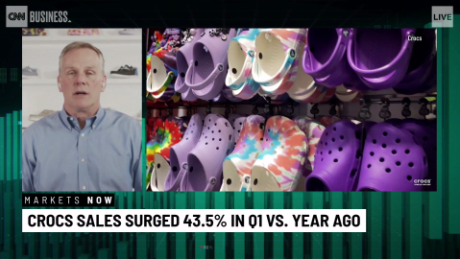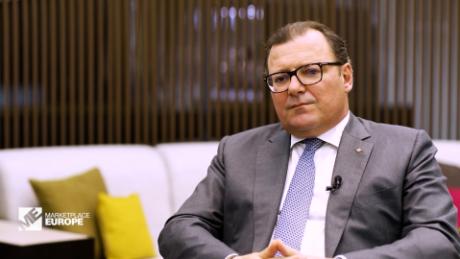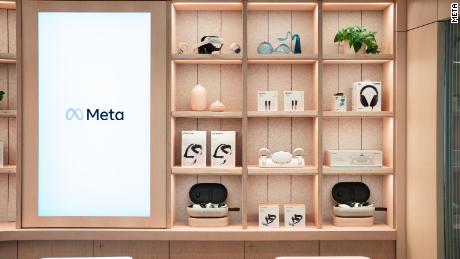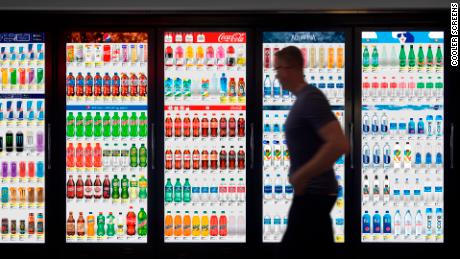New York (CNN)After months of sporting the "casual look" -- in some cases surrendering fully to our inner shaggy and shabby -- consumers are itching to trim, wax and glue their way back to their glorious pre-pandemic selves.
Service providers for body waxes, eyelash extensions and one-hour shampoo and blowout combos say their business has revved up since January even though it's not fully back to 2019 levels.
This recent uptick in demand offers a glimmer of hope that consumers are emerging from their cocoons after months of pandemic-driven social isolation that decimated service-centered businesses like restaurants, spas, nail and hair salons, forcing many standalone locations to shutter for good.
"Resuming pre-pandemic grooming behaviors is one way that consumers are indicating greater comfort and return to normal," Maria Steingoltz, managing director with L.E.K. Consulting, a management consulting firm, said in an email. "Consumers are eager to see their service providers with whom they often have personal connections and resume 'normal' behaviors like traveling and seeing family and friends."
In addition to pent up demand, Steingoltz said higher income households have more disposable income to spend as their personal savings rates have increased in 2021 with fewer activities to spend on. "As a result, personal expenditures in 2021 and 2022 on 'indulgences' may actually receive an outsized 'bump' as things open up and get back to normal."
At eyelash extension company Amazing Lash Studio, CEO Stephanie Hu said the long wait for the return of a steady stream of customers seems to be coming to an end. Amazing Lash Studio provides lash extension services through 260 franchised locations in 28 states.
"It really began in January and since then we're getting surges in customer traffic," said Hu, adding that customer numbers are already at 80% of where they were one year ago. Hu said 30,000 customers visited an Amazing Lash Studio in the first week of January this year and that number is up to 40,000 customers in the first week of March.
"The spike is wonderful to see," she said. False lashes and semi-permanent lash extensions were already one of the hottest pre-pandemic beauty trends, so much so that women had been rapidly dumping their mascaras for them.
Amazing Lash charges about $90 for a full set of extensions and customers have to come in for upkeep every two to three weeks (at an additional cost).
Hu thinks business is about to get "busier than we've ever been."
Vaccinations giving confidence
DryBar, a 141-chain franchise that provides shampoo and blowout services, says that vaccinations are helping drive business.
"Every month this year we are looking materially better," said Jeremy Morgan, CEO of WellBiz Brands, a portfolio company that acquired the franchisor rights for DryBar in February.
Morgan said sales in February were up 20% from January, and March sales are up another 10% from the prior month. "Sales are ratcheting up because demand is up," he said.
"Overall, we see that sales have rebounded in almost every state where we operate, and vaccinations are playing a big role in bringing back our older clientele who are typically the most conservative," said Morgan.
Even so, Morgan acknowledged that DryBar's overall business is still in recovery mode. "We are now lapping the disaster that was last year," he said. "It will take until mid-summer at least to get back to our pre-pandemic sales levels. In states where we are open, it's still at restricted capacity of 25% or 50%. So that's also 25% or 50% [of] revenue. That barely covers overhead."
About 11.5% of the US population is now fully vaccinated against Covid-19, and 2.4 million vaccine doses are being administered every day, according to the latest seven-day average of daily vaccinations given by the Centers for Disease Control and Prevention(CDC).
Morgan cited other macro trends helping to pull customers into DryBar stores.
"We are primarily an occasion-based service. One occasion is going to work. As offices begin to reopen, the professional working woman is returning for her regular appointments," said Morgan.
As more weekend social events get added to calendars, it's keeping DryBar locations busy on Friday and Saturdays, too, he said. "Lastly, special events are an important catalyst for DryBar," he said. "Weddings have been hit very hard last year. They are coming back but have been the slowest part of the business."
March typically marks the start of the spring wedding season "but we haven't seen this onslaught yet," said Morgan. Elsewhere, he expects travel-related primping could also help spur sales as consumers get more comfortable with planning their vacations.
With spring break and warmer weather around the corner, demand for waxing services is also seeing a lift, said David Berg, CEO of wax service provider European Wax Center, which operates 800 franchised locations nationwide. The most in-demand services currently are bikini wax, Brazilian wax and eyebrow wax.
"Where open, we are getting back to levels of pre-pandemic capacity." said Berg. It's happening, he said, because vaccinations are picking up pace, travel is picking up and trips to the beach are being planned.
What we have experienced is a great influx of people who haven't been able to get [personal] services like massages, haircuts and waxes," said Berg. "There's a lot of pent-up demand for it because [consumers] want to return to our normal regimen."
